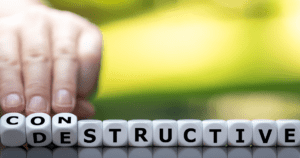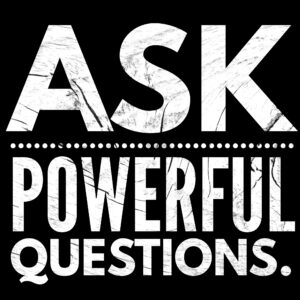Are you feeling uncertain and overwhelmed? Chances are, burnout is running the show in your life. You should know by now that stress is the precursor of burnout. And, it’s an intimidating, yet standard, feeling our society is exposed to.
Many allow stress to dictate their lives. This is why the most straightforward definition we should endorse is that stress is a reaction. We can agree that stress is an energy zapper. But to better understand the bigger picture, we must tackle stress granularly because, in essence, stress is nothing but a response. It’s our brain’s response to an internal or external petition, circumstance, or situation. Simply put, it’s the internal feedback we get from the outer world. But, if disregarded, it can lead to burnout.
In this article, we’re decoding the concept of burnout and the different avenues we can explore to overcome it. Because, as we’ll discover, burnout needs an extended time to develop. And most importantly, it’s the product of an imbalance between the outer and inner world.
Different Types of Stress
Are you lacking motivation, drive, passion, or the fuel to rise above challenging times and show up? These are all by-products of stress. Stress can hide under various capes – and can be harmful in many areas of your life. But, it’s vital to recognize when stress can be convenient and constructive. This is what most people don’t realize – there are two types of stress: destructive and constructive.

Destructive Stress
Destructive stress comes with pressure, inability to cope, and uncertainty. When an external situation causes stress, our bodies experience negative biochemical reactions: we dive into a panic phase, which catapults us into survival mode. Cortisol levels rise, the flight or fight response leads the way, and we don’t trust our capacities to find solutions for difficult situations.
Destructive stress prevents us from looking for solutions. It’s difficult to foresee the light at the end of the tunnel when you’re enveloped in darkness. The panic you’re in ejects you into survival mode. As panic skyrockets, harmful biochemical substances bombard us, leading us to lose muscle strength.
Why is the rise of cortisol such a scary prospect? Being the stress hormone, it’s easy to understand why no one wants to trigger its rise. But when we’re faced with uncertainty, our minds act haphazardly. Destructive stress can become a learned behavior. But, it’s like walking on a minefield, constantly dealing with danger and hoping it won’t implode and wreak havoc. Eventually, we must address the elephant in the room because stress is why numerous health issues exist.
The problem is when cortisol rises, not only our body suffers. Our intellectual understanding suffers because intelligence crashes under pressure. Stress can not only make the wolf look bigger but also scarier. The fear almost brainwashes us into believing there is no way out of a dangerous situation.
Constructive Stress
There are times when stress can inspire a positive course of action.
Stress can be beneficial when it wears the coat of a deadline; in this case, we’re referring to positive stress or eustress. It can provide the thirst to engage in a challenge and bring it to fruition.
Starting a new job or getting a promotion can also induce positive stress. It’s rewarding to know that our skills are recognized, and our efforts are acknowledged, but now, there’s a new situation to rise to. Any new job or promotion adds new responsibilities to our plate; our minds will probably try to protect us from novelty as it’s unknown territory. Some thoughts of not being good enough may sink in, especially in the beginning. But using the momentum of positive stress can help us progress in whatever endeavor we engage in.
Using stress as fuel to become a better person can give you an edge. The biochemical reactions constructive stress produces will gather your resources. This time, the rise of cortisol will increase focus and muscle strength. Instead of allowing the muscle tension destructive stress generates to debilitate you, constructive stress will propel you to deal with what’s in front of you. Muscle strength will increase, empowering you to summon up your courage and put your best foot forward.
The Difference Between Stress and Burnout
Stress can come and go. But when the visits stop being occasional and stress insidiously has stabilized its presence, we know we’re no longer dabbling through limited stressful periods of time. We’re now dealing with burnout.
If you’ve been dwelling in burnout for too long without doing anything about it, even the simplest task can gain astronomical proportions and cause overwhelm. You may also feel anxiety, general fatigue, emotional paralysis, and lack of purpose.
Burnout comes from a long-term mental investment in a stressful activity that depletes us emotionally, intellectually, or physically. Burnout can leave a mark when relationships are out of sync, our job input is undervalued, and we’re giving too much without filling our energy and self-care reservoirs.
If you make it a habit to watch events through a negative lens, you can generate destructive scenarios. This will raise your conviction that you must control the outer world.
Trying to control the outer world is similar to being stuck in a hamster wheel. You’ll always be inclined to maneuver scenarios and influence others to act congruently with your idea of how the world should unfold. When situations don’t turn out as you expect, you’ll experience higher stress. Because trying to force scenarios will put pressure on your body, leading to tension and resistance.
Burnout can also determine you to embody a pessimistic outlook on life. Becoming mindful of our reality and how we sculpt it can create mental spaciousness to welcome better scenarios. Dodging stress and burnout begins with self-reflection. And how do you ignite the self-reflection process? It all starts with you and the questions you ask yourself.
The Most Powerful Question to Ask Ourselves
Albert Einstein famously said, “The most important decision we make is whether we believe we live in a friendly or hostile universe.” But, before treating this as a debatable question, we should consider this a firm decision.

What’s a hostile universe? It’s a space where randomness and chaos thrive. It fosters the belief that everything can go wrong, there is no order or harmony, and we’re at jumble’s mercy. The conviction that we live in a hostile universe reduces our chances to succeed in any area of our lives. We’re inclined to be resistant and keep our guards up in the expectancy of the worst-case scenario. Needless to say that an attitude like this plummets our chances of success.
Dwelling in a hostile universe will make you want to control everything. But that will work against you because craving control comes from a fear-based perspective. In this case, most people will interpret it as a conspiracy of the universe against you. In reality, the only danger comes from trying to manipulate aftermaths. It’s almost impossible to be prepared for everything all the time, anticipating events and rummaging over what-could-have-been situations. Trying to force outcomes is a misrepresentation of your power and an official invitation for burnout to settle.
Allowing external factors to shape our reality can work to our detriment, especially when that reality is ruled by the Good Opinion Of People (GOOP). GOOP is a filter that will never allow you to operate 100% as you. You’ll always be terrified of what others think of you. If you always wait for someone else’s approval strategy, you’ll miss getting approval from the most valuable person: yourself. No one else can determine your life’s best course. Becoming rejection-proof is difficult, but it’s even more damaging to fear rejection and piggyback on others’ permission to live. It helps to move away from living up to the expectations of others and start charting your unique path, filled with challenges, mistakes, and, eventually, breakthroughs.
The idea that we live in a friendly universe empowers us to rule our own universe and make it work to our advantage. Thinking that we live in a friendly environment means tapping into a superior mental paradigm. If you believe everything conspires for you to thrive, you’ll reap the laurels of that model of thinking in real life. Chances, possibilities, opportunities, and synchronicities will all join forces to prove that life works in your favor.
We live in a self-reflective universe that acts as a mirror. There is little discrepancy between our internal dialogue and its representation in the outer world. So what will you choose to believe? That you’re part of a friendly universe or an unfriendly one?
The Inner World Vs. the Outer World
Everything starts with our belief system.
If you make it a habit to watch events through a negative lens, you can generate destructive scenarios. This will raise your conviction that you must control the outer world.
Trying to control the outer world is similar to being stuck in a hamster wheel. You’ll always be inclined to manoeuvre scenarios and influence others to act congruently with your idea of how the world should unfold. When situations don’t turn out as you expect, you’ll experience higher stress. Because trying to force scenarios will put pressure on your body, leading to tension and resistance.
Many things don’t fit our picture. It’s impossible to have your life running like a well-oiled machine all the time. There will always be delays, cancellations, and twists of events. Some situations will leave a bitter mark without providing a cohesive lesson. Others will make sense and make us develop a rewarding relationship with the unexpected.
But trying to resist the natural course of life will always backfire into burnout. Instead, try flowing and allowing life’s natural waves to modulate your reality. Hold tight to the belief that you live in a friendly universe – it can benefit you in the long run.
Crafting a self-made reality starts with self-regulation. Your internal environment should be your primary focus. When things go downhill, ask yourself: What’s the best use of my energy now? Does the anxiety that comes from overthinking serve this situation in any way? Or do they only add fuel to the fire?
Often, the outer world won’t change, but your relationship with it can. And that’s when you start to defy the rules of burnout. Developing faith in your abilities will help you face stress-charged situations with ease. Knowing that you’ve done your best, in any case, is the only need you can control. It’s precisely a shatterproof bond with our inner world that will lead to bouncing back from burnout. No matter how many tantrums life throws at you.
Stress can shape our decisions and can sentence us to undesired outcomes. But the decision to move away from stress and channel your focus into finding solutions will always help you bounce back from burnout.
Homeostasis – Home Sweet Home
Although stress is part of everyday life, we should always strive to keep homeostasis in check. Homeostasis is the body’s permanent quest for balance. When stress strikes, homeostasis is affected. The imbalance in our emotional spectrum makes us question our abilities to cope with challenges.
But here’s the fundamental thing to keep in mind. Our bodies are designed to cultivate and recreate symmetry. The body’s functions work relentlessly to make the organism adaptive to its environment. Just because stress affects a large part of the population doesn’t mean it should call all the shots every moment. If anything, we should only make use of constructive stress.
If you’re ready to escape the burnout matrix, stop procrastinating and work your way through goals that you actually accomplish, The Ultimate Self Mastery program is the fastest and most affordable way to get there.
What’s your way of dealing with stress, so it doesn’t morph into burnout?

